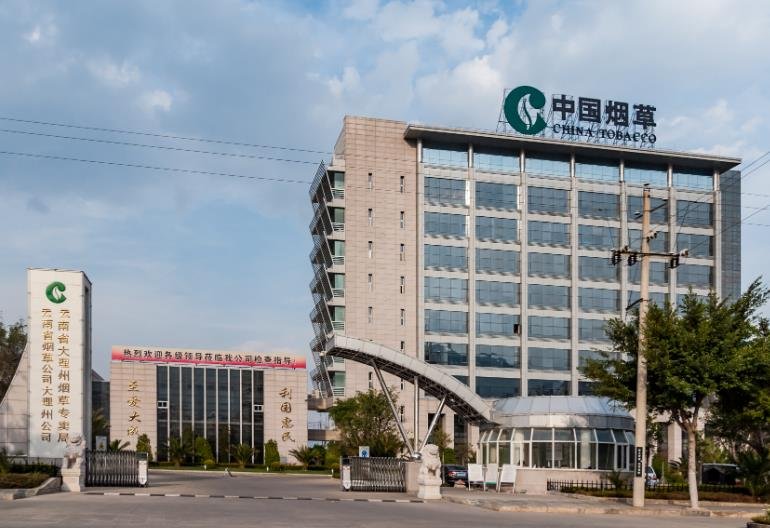Ling Chengxing, the former head of China’s State Tobacco Monopoly Administration, has been formally prosecuted on charges of bribery and abuse of power, marking a significant development in the country’s ongoing anti-corruption campaign.
On Monday, the Changchun Municipal People’s Procuratorate in Jilin Province filed a lawsuit against Ling Chengxing with the Intermediate People’s Court of Changchun. This action follows a public prosecution initiated by the Supreme People’s Procuratorate (SPP), signaling the highest level of judicial scrutiny in this case.
Ling Chengxing’s prosecution comes after an extensive investigation by the National Commission of Supervision, which concluded that Ling exploited his positions of power to engage in corrupt practices. The charges against him include accepting “extremely large” bribes and abusing his authority to benefit others, resulting in “especially serious losses” to state assets and interests.
Ling Chengxing’s Career and Influence
Ling Chengxing has been a prominent figure in China’s tobacco industry, holding significant positions that afforded him considerable influence. Prior to his role at the State Tobacco Monopoly Administration, Ling served as the vice governor of Jiangxi Province. His tenure in these high-ranking roles provided him with ample opportunities to engage in illicit activities, as prosecutors allege.
During his leadership at the China National Tobacco Corporation, Ling was responsible for overseeing operations that are critical to one of China’s most lucrative state-owned enterprises. The China National Tobacco Corporation not only dominates the domestic market but also plays a pivotal role in international trade, making Ling’s alleged misconduct particularly impactful.

Investigation and Legal Proceedings
The investigation into Ling Chengxing’s activities was spearheaded by the National Commission of Supervision, China’s top anti-corruption body. The commission’s thorough probe uncovered evidence of Ling’s involvement in securing personal benefits for associates and accepting substantial bribes in exchange for favorable treatment within the tobacco industry.
Following the investigation, the SPP designated the case for public prosecution, leading to the formal lawsuit filed by the Changchun Municipal People’s Procuratorate. The legal process will now move forward with Ling facing charges that could result in severe penalties, including hefty fines and potential imprisonment.
Impact on China’s Tobacco Industry
Ling Chengxing’s prosecution sends a strong message to the leadership of China’s State Tobacco Monopoly Administration and the broader tobacco industry. As one of the country’s most profitable sectors, the tobacco monopoly has long been subject to scrutiny regarding its business practices and governance.
Potential Consequences:
- Leadership Shake-up: Ling’s removal may lead to significant changes in the administration’s leadership structure.
- Policy Reforms: Increased efforts to eliminate corruption and enhance transparency within the tobacco monopoly.
- Market Stability: Ensuring that the monopoly’s operations remain stable and free from illicit influence.
The prosecution aims to restore integrity and public trust in the administration by addressing corruption at the highest levels. It also underscores the Chinese government’s commitment to maintaining strict oversight over state-owned enterprises.
Broader Implications for Anti-Corruption Efforts
Ling Chengxing’s case is part of China’s larger anti-corruption campaign, which has targeted numerous high-ranking officials across various sectors. This relentless pursuit of corrupt individuals serves multiple purposes:
- Deterrence: Demonstrating that corruption will not be tolerated, thereby discouraging similar behavior among other officials.
- Public Confidence: Building trust in the government’s ability to uphold justice and maintain ethical standards.
- Economic Integrity: Protecting state assets and ensuring that state-owned enterprises operate efficiently and transparently.
Key Objectives of the Anti-Corruption Campaign:
- Comprehensive Investigation: Thoroughly probing allegations of corruption to uncover the truth.
- Swift Prosecution: Ensuring that those found guilty face appropriate legal consequences.
- Systemic Reforms: Implementing policies and practices that prevent future instances of corruption.
Ling’s prosecution is a clear indicator that the campaign is far from over and will continue to target corrupt practices regardless of the individual’s rank or influence.
Statements from Authorities
In response to Ling Chengxing’s prosecution, officials from the SPP and the National Commission of Supervision have reiterated their commitment to rooting out corruption within state-owned enterprises.
“Corruption undermines the integrity and efficiency of our state institutions,” stated Li Wei, a spokesperson for the SPP. “Ling Chengxing’s case exemplifies our unwavering resolve to hold those in power accountable for their actions.”
Furthermore, the General Administration of Customs, which oversees the State Tobacco Monopoly Administration, has pledged to cooperate fully with the ongoing investigation and implement measures to prevent similar misconduct in the future.
Reactions from the Public and Industry
Ling Chengxing’s prosecution has elicited mixed reactions from the public and industry stakeholders. While many applaud the government’s decisive action against corruption, some within the tobacco industry express concern over potential disruptions and the future leadership of the administration.
Public Sentiment:
- Support for Anti-Corruption: A significant portion of the population views the prosecution as a necessary step towards a cleaner and more transparent governance system.
- Concerns Over Stability: Industry insiders worry about the potential impact on the tobacco monopoly’s operations and market stability.
“While it’s disheartening to see a respected leader face such charges, it’s crucial for the integrity of our institutions,” remarked Zhang Ming, a market analyst. “This move could lead to necessary reforms and a more accountable administration.”
Future Developments to Watch
As the legal proceedings against Ling Chengxing unfold, several key developments are anticipated:
- Court Hearings: The Intermediate People’s Court of Changchun will conduct hearings to examine the evidence and hear Ling’s defense.
- Potential Sentencing: Depending on the court’s findings, Ling could face significant penalties, including imprisonment and substantial fines.
- Policy Enhancements: The tobacco monopoly may implement stricter oversight and compliance measures to prevent future corruption.
The outcome of this case will not only affect Ling Chengxing’s future but also set a precedent for how similar cases are handled within China’s state-owned enterprises.
The prosecution of Ling Chengxing marks a pivotal moment in China’s ongoing battle against corruption within its state-owned enterprises. By addressing misconduct at the highest levels, the government aims to reinforce the principles of transparency and accountability, ensuring that state monopolies operate in the best interests of the public and the nation’s economy.
Emily Wilson is a talented wordsmith whose passion for cannabis shines through in her eloquent articles that explore the plant’s cultural significance and historical context. With a focus on arts and lifestyle, she weaves together narratives that celebrate the creativity, innovation, and community fostered by cannabis enthusiasts worldwide. Emily’s unique perspective and engaging storytelling invite readers to embark on a journey of discovery and appreciation for the diverse facets of the cannabis experience.








